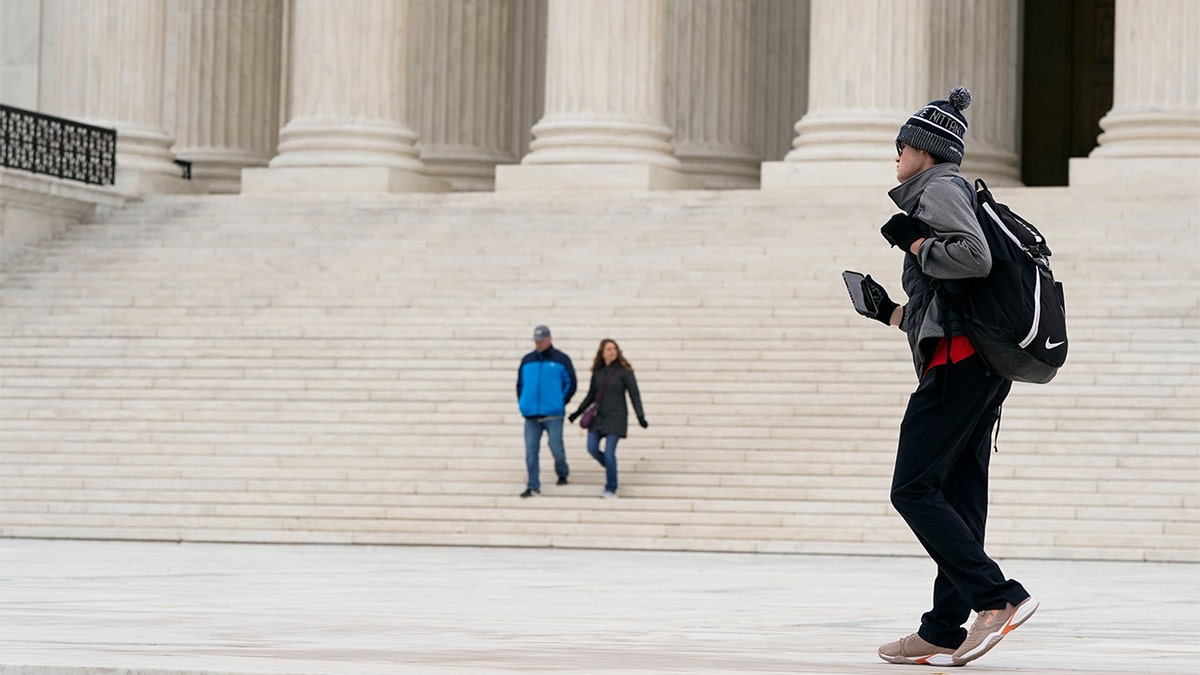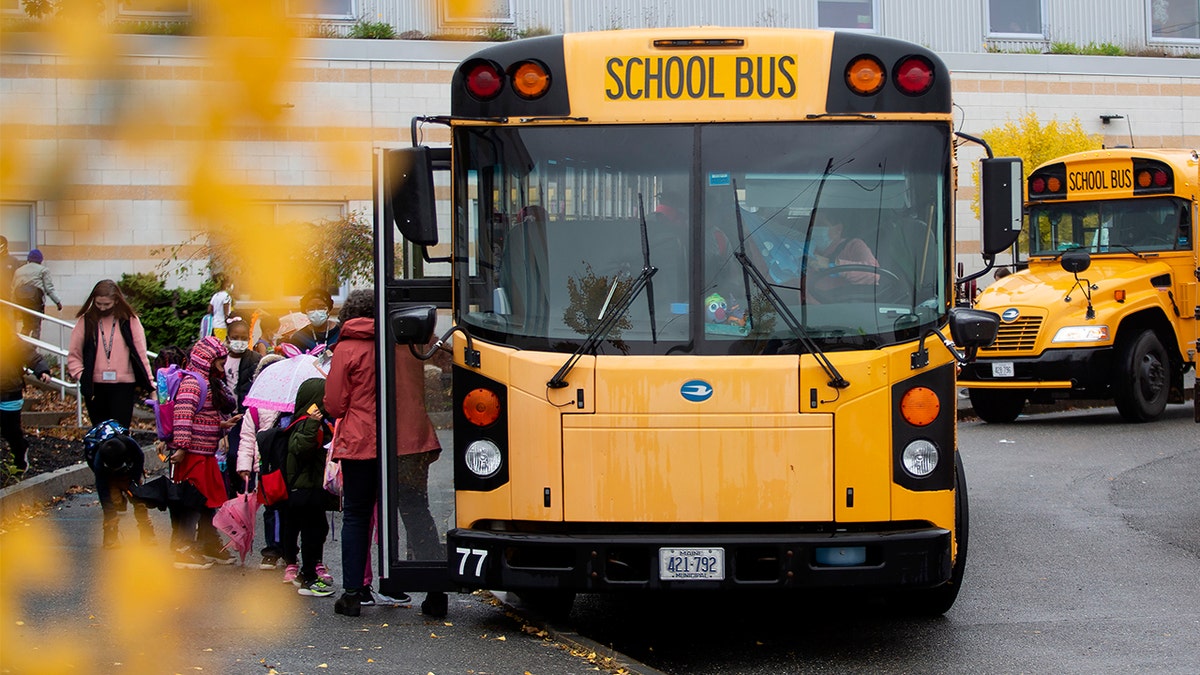Fox News Flash top headlines for December 8
Fox News Flash top headlines are here. Check out what's clicking on Foxnews.com.
Conservative Supreme Court justices raised challenges to a Maine program that provides tuition for private schools, but excludes religious schools.
The program provides tuition assistance for students without a local public school to attend private institutions – as long as the funding is not used for religious or "sectarian" teaching. During Supreme Court oral arguments Wednesday in the case of Carson v. Makin, it appeared that a number of justices believed this violates the Constitution.
SUPREME COURT ORAL ARGUMENTS IN CARSON V. MAKIN: WHAT TO EXPECT IN MAINE SCHOOL VOUCHER CASE
"You're discriminating among religions based on their beliefs," Chief Justice John Roberts said, pointing to how if one religion taught the same way as a public school but a different religion taught differently, the first would be able to participate in the program but the other would not.

Blake Fox, 19, of Washington, listens to a live broadcast of the U.S. Supreme Court arguments in Carson v. Makin in Washington, Dec. 8, 2021. (REUTERS/Elizabeth Frantz)
"So it is the beliefs of the two religions that determines whether or not the schools are going to get the funds," Roberts said. "And we have said that is the most basic violation of the First Amendment religion clauses for the government to draw distinctions between religions based on their doctrine."
Maine Chief Deputy Attorney General Christopher Taub argued that the state should not be funding anything that instills religious beliefs, and providing money for secular private schools does not do that.
"They are not being discriminated against, they simply are not being offered a benefit that no family in Maine is entitled to," Taub said.
Taub likened the funding of education so long as it is not religious to the federal government funding family planning as long as the money does not go toward abortions.

Lori Gadreau asks a question at Loranger Memorial School, in Old Orchard Beach, Maine, on Tuesday, Sept. 8, 2020. (Brianna Soukup/Portland Press Herald via Getty Images)
Taking Maine’s side was U.S. Deputy Solicitor General Malcolm Stewart, who said it is wrong to frame the issue as one of discrimination.
"This is a case about what the government has to subsidize … it’s not a case about the government either imposing affirmative restraints on religion or denying generally applicable benefits to persons based on religious exercise outside the program," Stewart said.
Justice Clarence Thomas took issue with the characterization of the funding as a subsidy or benefit, given that Maine requires children to go to school, so the school choice program is really just allowing students a way to comply with the law.
SUPREME COURT REFUSES TO BLOCK MAINE'S COVID-19 VACCINE MANDATE FOR HEALTH CARE WORKERS
Justice Brett Kavanaugh insisted that the Maine program is discriminatory by treating religious schools differently than secular ones.
"Discriminating against all religions versus secular is itself a kind of discrimination that the court has said is odious to the Constitution," he said.

Students board buses at East End Community School in Portland, Maine. (Derek Davis/Portland Press Herald via Getty Images)
Justice Elena Kagan, however, countered that "the state generally doesn't have to subsidize the exercise of a right" like free speech.
"So why is religion different?" she asked. "This state doesn't want to, so why does the state have to subsidize the exercise of a right?"
Justice Stephen Breyer appeared to defend Maine, but for a different reason.
CLICK HERE TO GET THE FOX NEWS APP
"It is discriminatory against religion," Breyer said, but warned that forcing Maine to give money to religious institutions opens the state up to all sorts of problems that could arise as a result, such as whom they hire.
Advocates on both sides of the issue have admitted that the current legal debate is muddled. In 2020, the Supreme Court ruled the government cannot ban taxpayer-fund aid in a generally available program from going to religious schools. It was considered a major win for religious liberty advocates. Maine’s program includes different language over teaching religion that, if upheld, could effectively neuter the earlier ruling.
Fox News’ Shannon Bream contributed to this report.














































